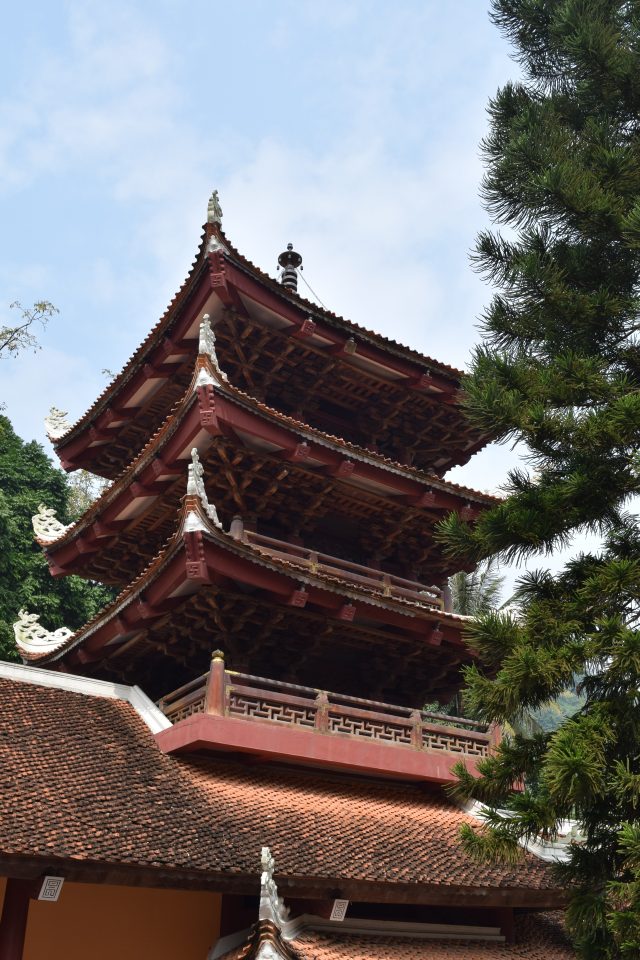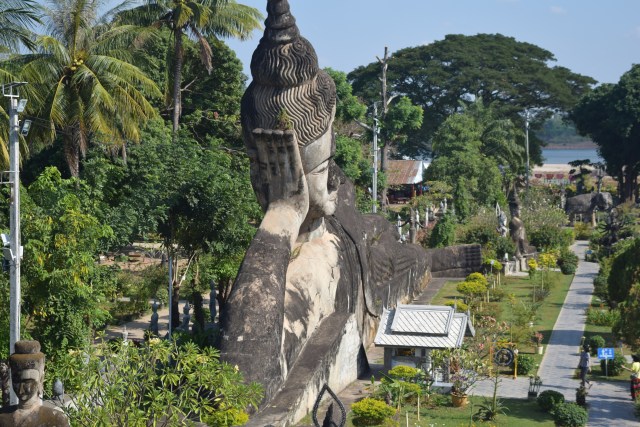Wat Si Saket is a Buddhist temple and museum in Vientiane, Laos. There are many wats, or temples, in Vientiane and Wat Si Saket was the first that we visited during our day-long tour of Vientiane’s inner city. Built in 1818, it might be the oldest wat as many of the wats have been destroyed and rebuilt due to the many wars and invasions of Laos. Because it is a museum as well as a temple, there are many ancient Buddhist statues on display within the temple grounds.






The Wat Si Saket was built in the Siamese style of Buddhist architecture, making it different than a lot of the other wats that we visited during our tour. The architecture and artwork were definitely fascinating with so many different details on the various buildings. As with most wats, there were stupas all around the exterior wall of the temple where important Buddhist priests and other citizens are entombed. There is also a typical drum tower, which the priests use to call people to the temple for prayer.






Because the inner city of Vientiane is so walkable, it is easy to visit multiple wats in a single day. Starting with Wat Si Saket is a perfect starting point since it is open to the public from 8:00 to 17:00 seven days a week. It might seem strange to have so many temples in a country that is communist, but as it was explained to us, the political system is communist, the economy is capitalist, and the majority of the people are Buddhist.






















































